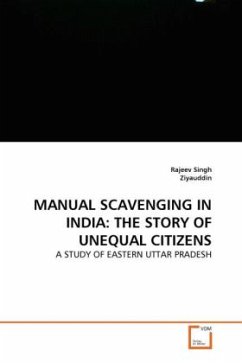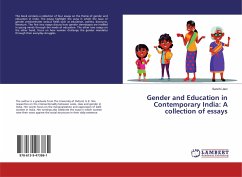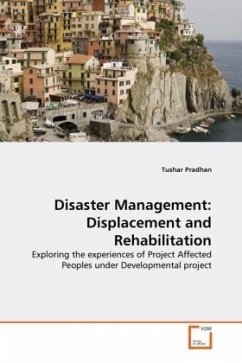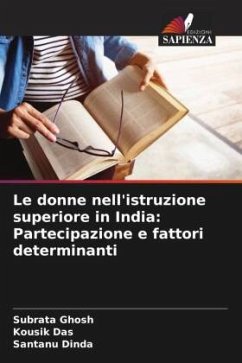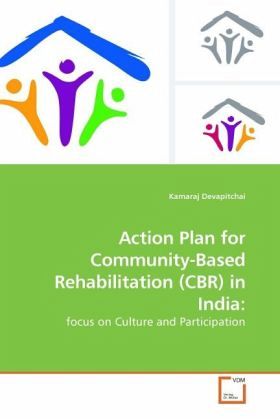
Action Plan for Community-Based Rehabilitation (CBR) in India:
focus on Culture and Participation
Versandkostenfrei!
Versandfertig in 6-10 Tagen
32,99 €
inkl. MwSt.

PAYBACK Punkte
16 °P sammeln!
It has been said that the way people behave and participate in programmes is largely dependent on the local culture of the community they live in, which includes people s beliefs, practices, and traditions. But, the way in which culture affects and works have been poorly understood. This is important as community development activities take place in a cultural context. The study findings show that there is a clear link between local cultural values and the challenges people with disabilities (PWDs) face, and they are not the same across the country (India). Explicit acknowledgment of cultural ...
It has been said that the way people behave and participate in programmes is largely dependent on the local culture of the community they live in, which includes people s beliefs, practices, and traditions. But, the way in which culture affects and works have been poorly understood. This is important as community development activities take place in a cultural context. The study findings show that there is a clear link between local cultural values and the challenges people with disabilities (PWDs) face, and they are not the same across the country (India). Explicit acknowledgment of cultural aspects in community projects is not found from the available data. The author has used information from the situational analysis to develop a participatory action-plan for community-based rehabilitation in India. This book should be especially useful for policy makers, CBR professionals and development workers involved in disability and rehabilitation.




